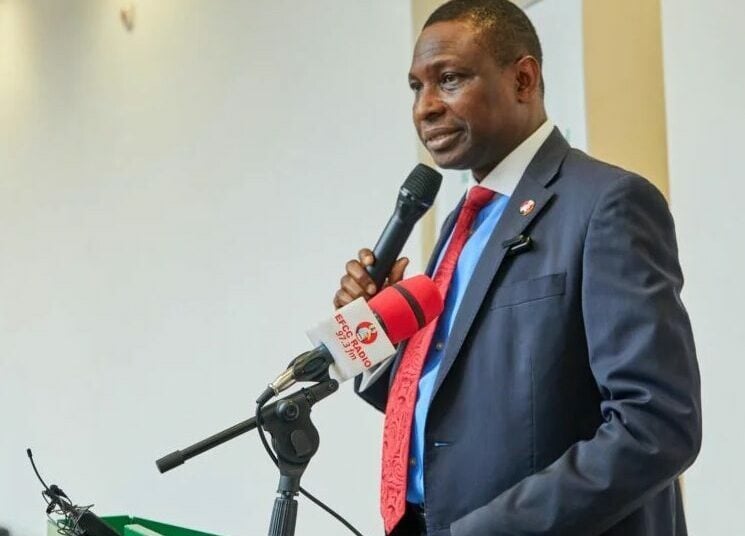Chairman of the Economic and Financial Crimes Commission (EFCC), Ola Olukoyede, has revealed that a significant number of abandoned estates in Abuja and other parts of Nigeria were owned by civil servants who used stolen public funds to finance their construction.
Olukoyede made the disclosure on Wednesday while speaking at a policy dialogue organised by Law Corridor in Abuja, themed “Critical Issues Affecting Nigeria’s Real Estate Ecosystem.”
According to him, some of the estates have been left incomplete and unoccupied for over a decade due to the sudden halt in illegal financial inflows once their civil servant-owners exit public office.
“It will shock you that some of these estates have been abandoned for 10 to 20 years,” he said. “They just take it to a level, and they abandon it. Nobody knows what is going on. What we have been able to gather is that most of these estates were funded by civil servants who have stolen money.”
He further revealed that the EFCC has now set up a special team tasked with visiting and investigating all such properties nationwide to trace their true ownership.
“I have set up the team. We will start visiting all the estates, not only in Abuja but across Nigeria. We want to know who owns what,” Olukoyede stated.
The anti-graft boss noted that the commission has already initiated forfeiture proceedings on about 15 estates and warned that more legal actions were underway.
“We have gotten more intelligent, too. Some of you sitting in this room, probably some of those estates belong to you. But very soon, we expect to meet you in court because there is no way we will develop this sector if we continue with that attitude,” he said, addressing stakeholders at the event.
While acknowledging that some investors and developers have legitimate sources of capital, Olukoyede cautioned lawyers and real estate practitioners against enabling money laundering.
“I know some of you have your genuine source of capital. But do not lend yourself as a willing tool in the hands of those who engage in money laundering,” he warned.
Also speaking at the event, Afam Osigwe, President of the Nigerian Bar Association (NBA), emphasised the urgent need for a centralised property registry to enable verification of ownership and reduce fraud in the real estate sector.
He also raised concerns over the arbitrary revocation of land titles by authorities on the basis of unpaid ground rent, warning that such actions could deter foreign investment.
“We need a centralised system to verify ownership. And we must be careful with arbitrary revocations—it sends the wrong signal to foreign investors,” Osigwe said.
Adding to the conversation, Ayokunle Erin, Practice Group Lead for Real Estate, Construction, and Infrastructure at Law Corridor, highlighted Nigeria’s persistent housing shortfall, which stands between 17 to 20 million units. He stressed that despite the massive demand, annual supply remains abysmally low.
“In Abuja, for example, only about 5,000 units were constructed in 2024, satisfying less than 10 percent of the city’s needs,” Erin disclosed.
He attributed the dire state of the sector to deep-rooted policy failures, legal loopholes, and a lack of regulatory enforcement, which have created a fertile ground for fraudsters, unlicensed agents, and quacks to thrive.











